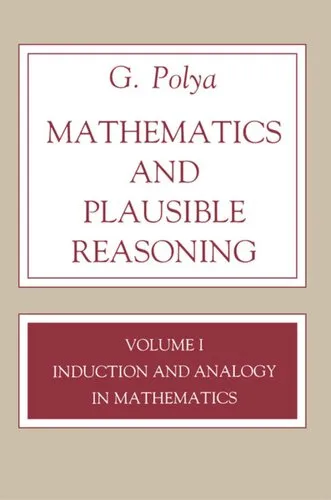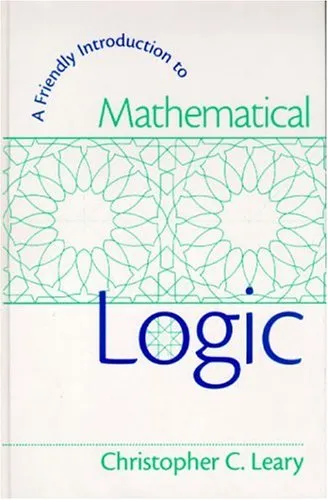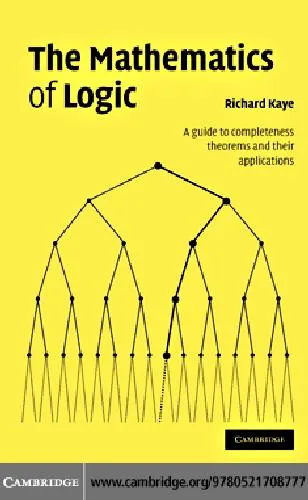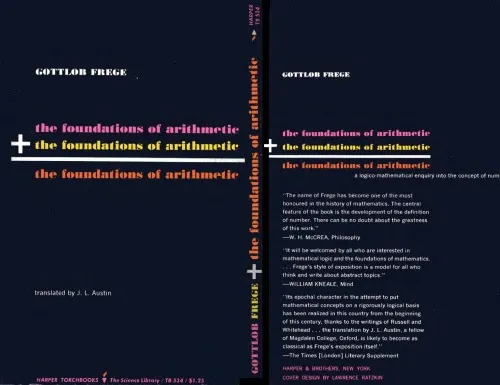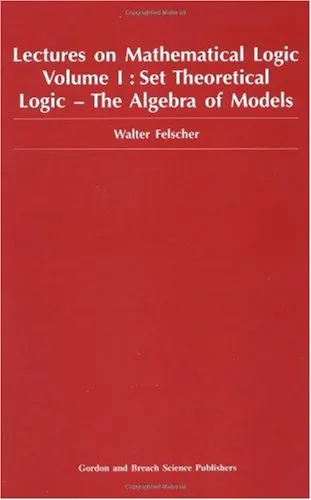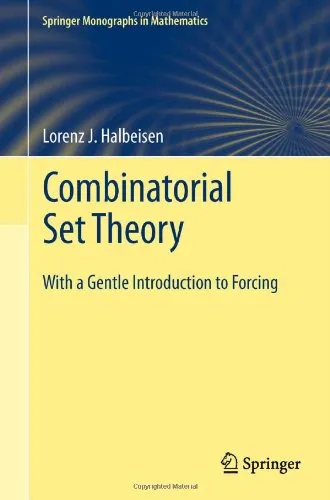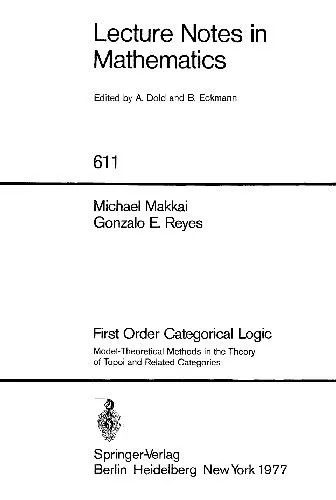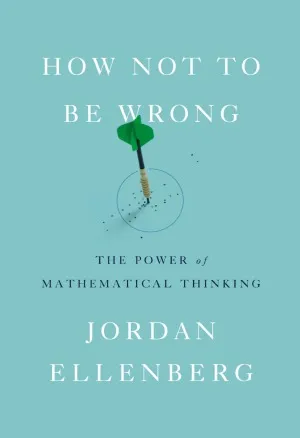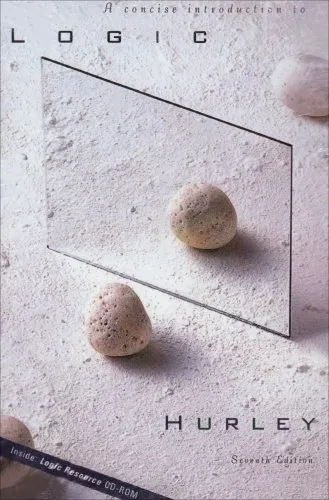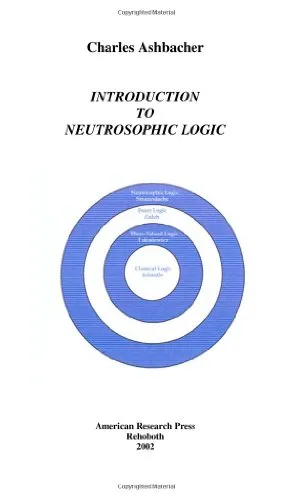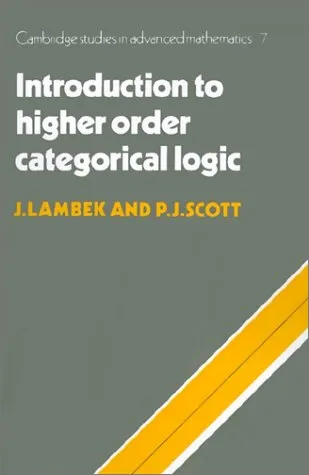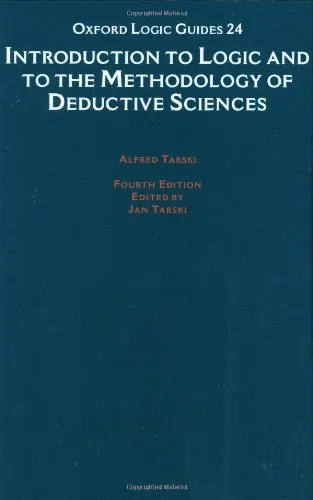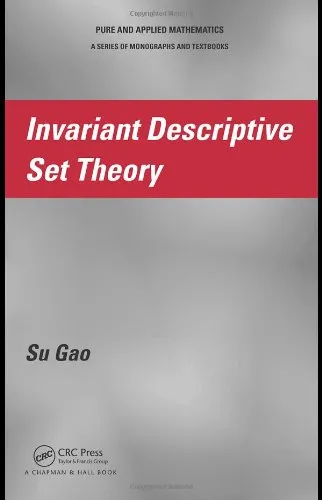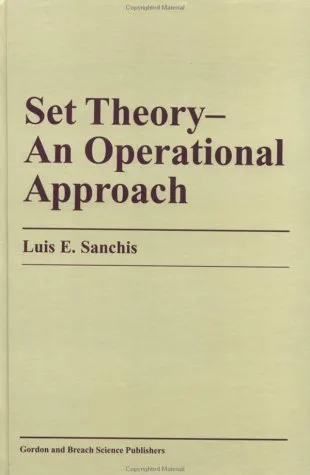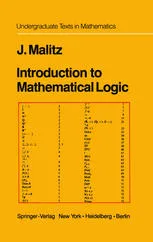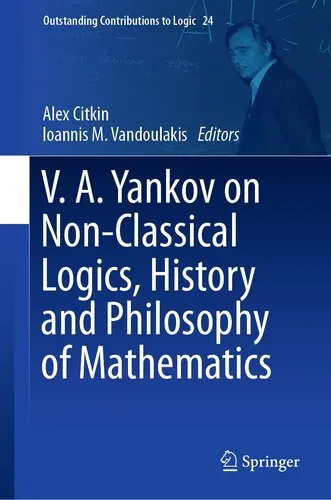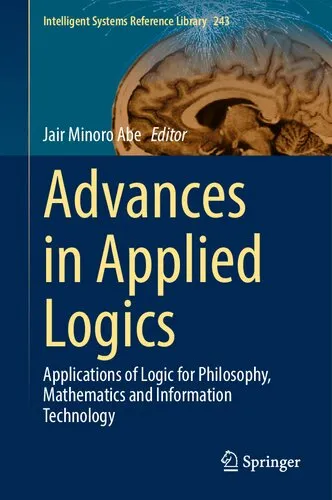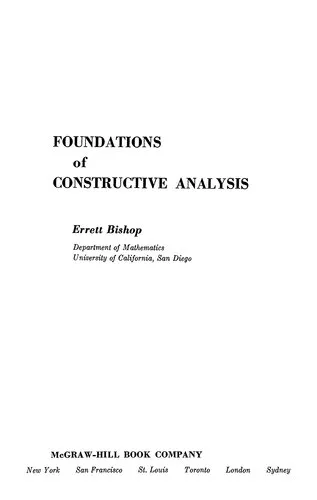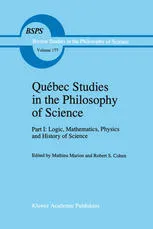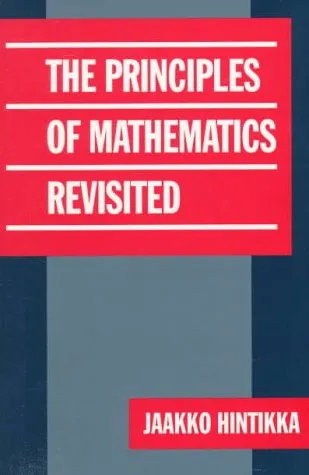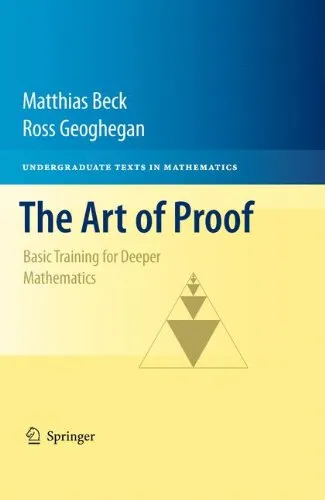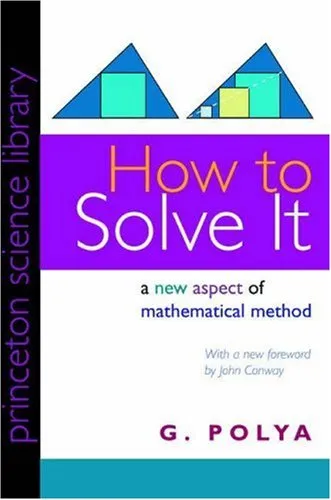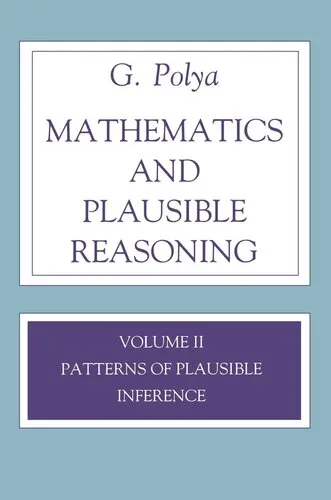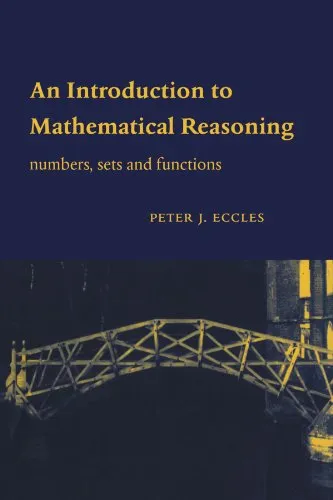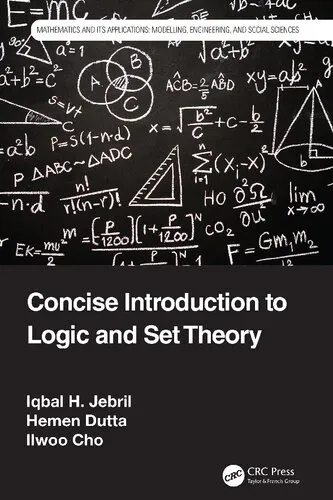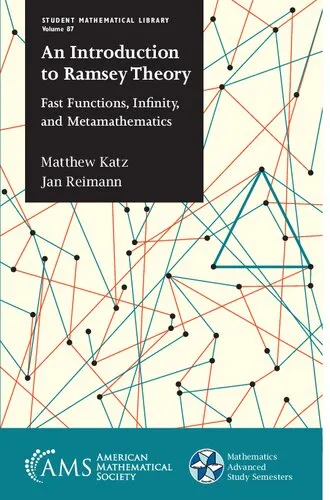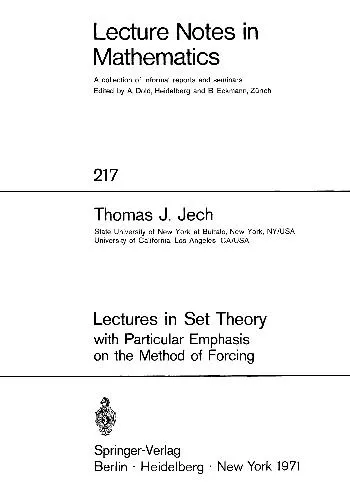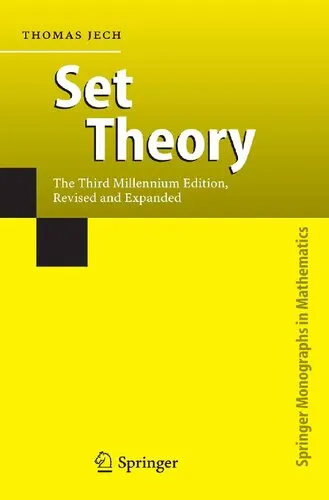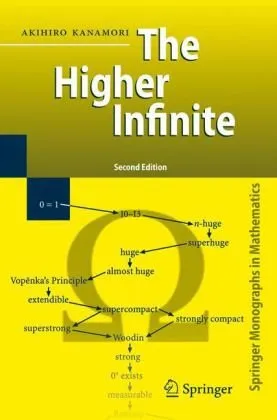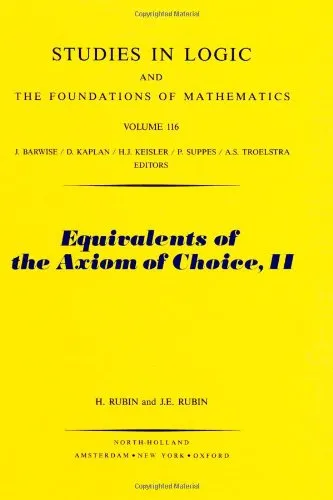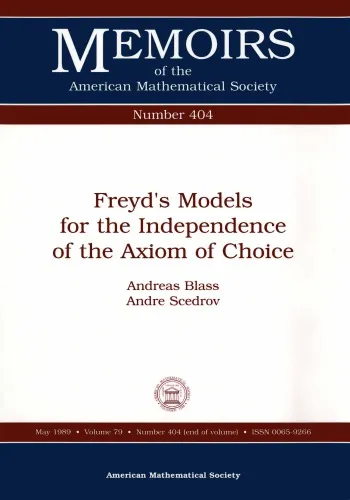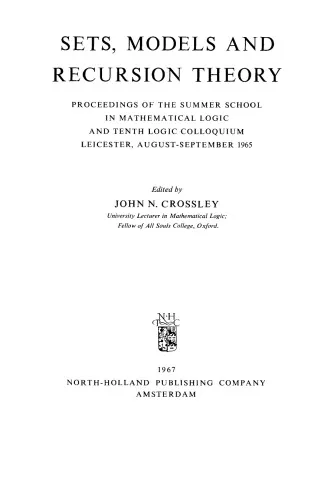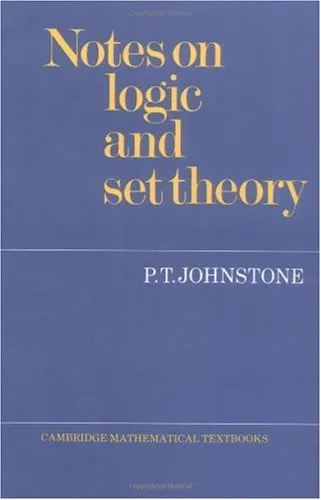Mathematics and Plausible Reasoning, Volume 1: Induction and Analogy in Mathematics
4.7
بر اساس نظر کاربران

شما میتونید سوالاتتون در باره کتاب رو از هوش مصنوعیش بعد از ورود بپرسید
هر دانلود یا پرسش از هوش مصنوعی 2 امتیاز لازم دارد، برای بدست آوردن امتیاز رایگان، به صفحه ی راهنمای امتیازات سر بزنید و یک سری کار ارزشمند انجام بدینکتاب های مرتبط:
معرفی کلی کتاب
کتاب Mathematics and Plausible Reasoning, Volume 1: Induction and Analogy in Mathematics نوشتهی جورج پولیا یکی از آثار برجسته در حوزهی ریاضیات و استدلالهای مرتبط با آن است. این کتاب برای کمک به ریاضیدانان، دانشجویان و افراد علاقهمند به شناخت بهتر نحوهی عمل کردن ذهن هنگام حل مسأله طراحی شده است. در این جلد اول، تمرکز اصلی بر روی استقراء و تشبیه بهعنوان ابزارهای کلیدی در تفکر ریاضی است. جورج پولیا با استفاده از مثالهای ملموس و قابل فهم، مفاهیمی مانند استدلالهای قابلقبول، شباهت میان مسائل ریاضی و کاربردهای گستردهتر تشبیه در ریاضیات را توضیح میدهد.
خلاصهای از کتاب
این کتاب به سه بخش اصلی تقسیم شده است که به طور جداگانه به ابزارهای استدلال ریاضی میپردازند. در بخش اول، پولیا به مفهوم استقراء ریاضی و استفادهی آن در حل مسائل میپردازد. نویسنده توضیح میدهد که چگونه میتوان از موارد خاص برای نتیجهگیریهای عمومی استفاده کرد. در بخش دوم، اهمیت analogies (تشبیهات) در کشف و استنتاجهای ریاضی توضیح داده میشود. پولیا نشان میدهد که چگونه میتوان از تجارب قبلی و شباهتها میان مسائل مختلف برای حل مسائل جدید استفاده کرد. بخش سوم به ماهیت استدلالهای خلاقانه و قابلقبول میپردازد و توضیح میدهد که چگونه این ابزارهای فکری به ریاضیدان کمک میکنند تا به درک عمیقتری از ساختارهای پیچیده دست یابد.
نکات کلیدی
- درک عمیق از کاربرد induction در کشف الگوهای ریاضی و اثباتها.
- نحوه استفاده مؤثر از analogy برای یافتن شباهتها میان مسائل مختلف و تسهیل فرآیند حل مسئله.
- تأکید بر اهمیت خلاقیت در استدلالهای ریاضی و گسترش دیدگاههای ابزارهای منطقی و معتبر.
- استفاده از مثالهای تاریخی و مشکلات واقعی برای توضیح نکات نظری کتاب.
جملات معروف از کتاب
"Mathematics is not a ready-made thing, but a living process of discovery."
"The aim of mathematics is not to arrive at complete certainty, but to achieve a plausible understanding."
این نقل قولها به خوبی فلسفهی پولیا در مورد فرآیند ریاضیات به عنوان جستجوگری و تجربه اشاره دارند.
چرا این کتاب اهمیت دارد؟
کتاب حاضر نه تنها برای دانشمندان و ریاضیدانان ارزشمند است، بلکه برای هر کسی که میخواهد ذهنی تحلیلگر و منطقی داشته باشد، یک منبع بنیادین است. تمرکز آن بر روی ابزارهای فکری مانند induction و analogy نشان میدهد که این ابزارها چقدر در فرآیند کشف و یادگیری مؤثر هستند. علاوه بر این، سبک نوشتاری پولیا کاملاً جذاب است و ترکیبی از وضوح، عمق و خلاقیت را ارائه میدهد، که مطالعه آن را برای هر کسی که به موضوعات فلسفه ریاضی یا حل مسئله علاقه دارد، واجب میسازد.
Introduction to "Mathematics and Plausible Reasoning, Volume 1: Induction and Analogy in Mathematics"
"Mathematics and Plausible Reasoning, Volume 1: Induction and Analogy in Mathematics" is an extraordinary work authored by George Pólya, one of the most celebrated mathematical thinkers of the 20th century. This book serves as a bridge between rigorous mathematical reasoning and the often less formal—but equally essential—plausible reasoning that underpins human problem-solving. It explores how mathematicians and thinkers develop ideas, form conjectures, and make connections based on patterns and analogies, often before solid proof is uncovered.
In this first volume of his two-part series, Pólya shifts the focus from deductive reasoning, which is the hallmark of formal mathematics, to a more intuitive and exploratory approach. By doing so, the book demystifies how the process of discovery happens and sheds light on the creative and heuristic methods that lead to new mathematical insights. It is a must-read for mathematicians, scientists, educators, and even students who seek to deepen their understanding of how powerful ideas in mathematics emerge. Whether you are an expert or a curious learner, this book will transform how you think about problem-solving and mathematical discovery.
Detailed Summary of the Book
The core premise of "Mathematics and Plausible Reasoning, Volume 1" revolves around the idea that mathematics is not purely deductive but also involves hypotheses, analogies, and inductive reasoning. Over the course of the book, Pólya examines how mathematical discovery often starts with plausible ideas that must later be tested and validated. He divides the content into two main areas—induction and analogy.
The section on induction explains how mathematicians and scientists extrapolate from specific cases to general principles. By reflecting on real mathematical problems, Pólya demonstrates how past experience and observed regularities can form the basis of new theories. He intertwines classical examples, problem-solving techniques, and insights into the human thought process.
The discussion on analogy takes a closer look at how similarities between different problems, structures, or results can serve as a guiding tool. Through detailed examples and step-by-step reasoning, Pólya shows how analogies provide a foundation for further exploration while highlighting both their strengths and limitations. By doing so, he not only celebrates the creative elegance of mathematics but also instills respect for the scientific rigor required to confirm plausible reasoning.
Key Takeaways
- Mathematics involves not just deductive proofs but also the creative processes of induction and analogy.
- Plausible reasoning allows mathematicians to make conjectures and discoveries before formal validation.
- Analogies play a vital role in solving problems by drawing comparisons between seemingly unrelated concepts.
- The principles explored in the book are directly applicable not only to mathematics but also to science, engineering, and general problem-solving.
- This book emphasizes the value of curiosity, patterns, and intuition in the discovery process.
Famous Quotes From the Book
"Mathematics is not a deductive science—that's a cliché. When you try to prove a theorem, you don't just list the axioms and then draw conclusions. That's not the way it works. You come up with an idea, then you try to convince yourself that it's correct."
"Induction makes broad generalizations from specific observations, while analogy involves inferring similarities from comparisons."
"Plausible reasoning not only inspires us to seek, but also guides us toward what might eventually lead to rigorous proof."
Why This Book Matters
"Mathematics and Plausible Reasoning, Volume 1" is a groundbreaking text because it highlights an essential but often overlooked aspect of mathematical thinking—the journey from conjecture to proof. By focusing on induction and analogy, Pólya provides a rare glimpse into the creative aspects of mathematics, which are as critical as the formal processes taught in classrooms.
This book stands out for its timeless relevance. While mathematics has grown considerably as a discipline since the book's publication, Pólya’s insights remain pertinent because they are rooted in fundamental human thought processes. The emphasis on plausible reasoning allows readers to appreciate the artistry and ingenuity behind mathematical discoveries.
Furthermore, this book is a valuable resource for educators and students alike. Teachers can use its principles to nurture curiosity and analytical thinking in their classrooms, while students gain a deeper appreciation for the methods that mathematicians use when tackling difficult problems. More broadly, it serves as inspiration to anyone interested in the intellectual adventure of reasoning.
دانلود رایگان مستقیم
شما میتونید سوالاتتون در باره کتاب رو از هوش مصنوعیش بعد از ورود بپرسید
دسترسی به کتابها از طریق پلتفرمهای قانونی و کتابخانههای عمومی نه تنها از حقوق نویسندگان و ناشران حمایت میکند، بلکه به پایداری فرهنگ کتابخوانی نیز کمک میرساند. پیش از دانلود، لحظهای به بررسی این گزینهها فکر کنید.
این کتاب رو در پلتفرم های دیگه ببینید
WorldCat به شما کمک میکنه تا کتاب ها رو در کتابخانه های سراسر دنیا پیدا کنید
امتیازها، نظرات تخصصی و صحبت ها درباره کتاب را در Goodreads ببینید
کتابهای کمیاب یا دست دوم را در AbeBooks پیدا کنید و بخرید
